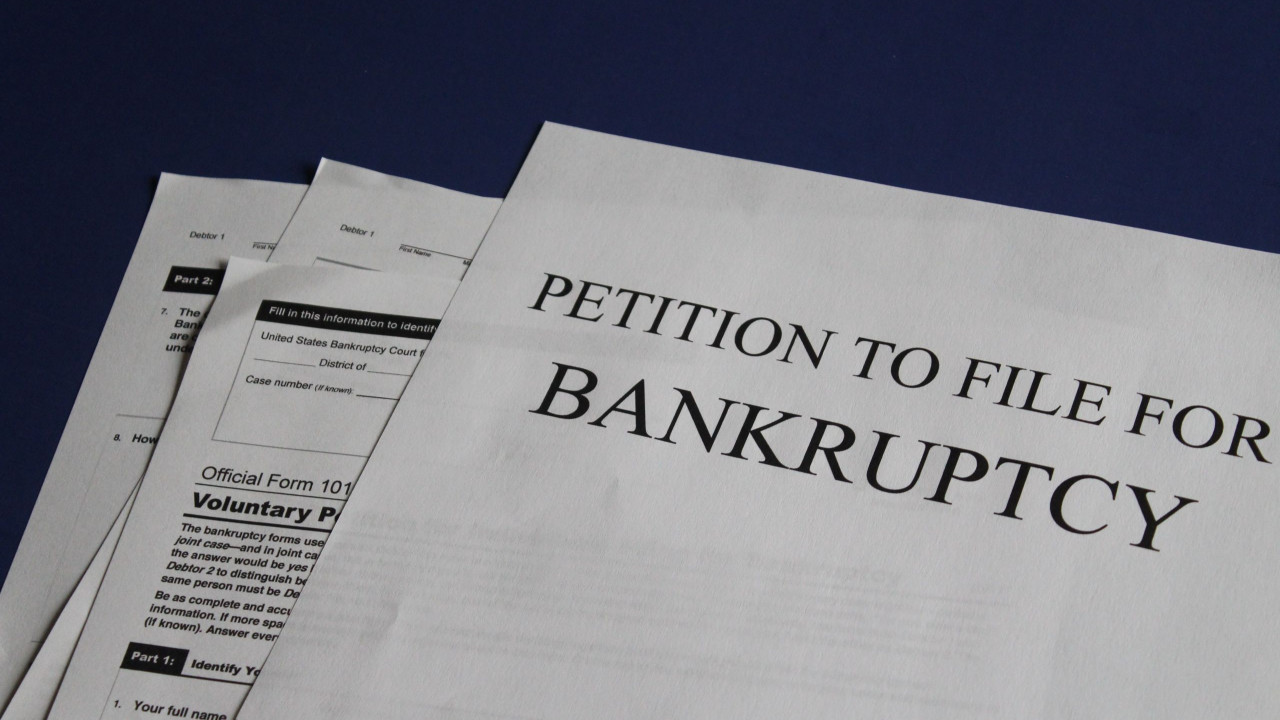Understanding Bankruptcy : Essential Information

Navigating Bankruptcy
Navigating the complexities of bankruptcy requires a clear understanding of the available options and eligibility criteria. Individuals considering this financial route must comprehend the different types of bankruptcy, including Chapter 7 and Chapter 13 bankruptcy. Moreover, grasping the impact of bankruptcy on personal assets is crucial for informed decision-making.
Understanding the nuances of chapter 7 bankruptcy and chapter 13 bankruptcy is essential to determine the most suitable option based on individual financial situations. Additionally, being aware of the eligibility criteria for filing for bankruptcy is fundamental to assess whether one qualifies for this debt relief solution.
It's important to understand that each type of bankruptcy has its own set of implications and requirements.
Bankruptcy Options
Bankruptcy Options
When considering bankruptcy, individuals must familiarize themselves with the available options and the specific criteria associated with each. Understanding the types of bankruptcy, such as Chapter 7 and Chapter 13, is essential for making informed decisions about managing overwhelming debt.
Types of Bankruptcy
In Texas, the primary types of bankruptcy are Chapter 7 and Chapter 13. Each category comes with its own consequences and prerequisites.
Qualifying for Chapter 7 bankruptcy necessitates meeting specific income and asset criteria. This chapter typically involves the liquidation of non-exempt assets to settle debts.
On the other hand, Chapter 13 bankruptcy entails creating a court-approved repayment plan to settle debts over a period of time. This option allows individuals to retain their assets while adhering to the repayment plan.
Eligibility Criteria
Understanding the means test is crucial for determining eligibility for bankruptcy . The means test assesses an individual's income and expenses to determine if they qualify for Chapter 7 bankruptcy or if they should consider alternative options like Chapter 13.
Debtors are also required to complete credit counseling within 180 days before filing for bankruptcy. It's important to note that certain debts, such as tax debts and student loans, may not be dischargeable in bankruptcy.
Financial Impact
Credit Score Effects
Filing for bankruptcy can have a significant impact on an individual's credit score. The record of bankruptcy remains on the credit report for several years, affecting creditworthiness and the ability to secure favorable terms for loans or new lines of credit.
Rebuilding credit after bankruptcy is feasible but requires time and responsible financial management. By consistently making timely payments and using credit responsibly, individuals can gradually improve their credit score over time.
Understanding how bankruptcy affects creditworthiness is crucial for individuals considering this option. It's important to be aware of the potential challenges and the steps necessary to rebuild credit and regain financial stability.
Impact on Assets
Bankruptcy may involve the liquidation of non-exempt assets in Chapter 7 cases, where the proceeds are used to repay creditors. This process aims to provide partial relief from overwhelming debt by utilizing available assets.
In contrast, Chapter 13 bankruptcy allows individuals to retain their assets while adhering to the court-approved repayment plan. This provides an opportunity to restructure debt without losing personal possessions or property.
Understanding the impact of bankruptcy on personal assets is crucial for informed decision-making. It enables individuals to assess the implications on their financial future and make well-informed choices regarding their path toward debt relief.
Legal Protections
Automatic Stay
Upon filing for bankruptcy, individuals benefit from the automatic stay, which serves as a crucial legal protection. This provision halts creditor actions, including foreclosure proceedings and wage garnishment. Understanding the scope of protections provided by the automatic stay is essential for individuals seeking relief from aggressive creditor actions that may be exacerbating their financial situation.
It's important to note that while the automatic stay provides significant relief, certain exceptions apply. For instance, actions related to domestic support obligations are not subject to the automatic stay, ensuring that these obligations remain unaffected during the bankruptcy process.
Debt Discharge
In bankruptcy proceedings, certain types of debts may be discharged, providing individuals with relief from overwhelming financial obligations. Debts such as credit card debt and medical bills are examples of obligations that may be dischargeable in bankruptcy.
Understanding the process and requirements for debt discharge is crucial for individuals seeking relief from unmanageable debt burdens. It's important to note that while bankruptcy offers a fresh start by discharging many types of debts, not all obligations can be discharged. Certain debts may persist even after filing for bankruptcy, emphasizing the importance of comprehending the full scope of debt discharge within the context of personal financial circumstances.
Financial Options
Alternatives to Bankruptcy
When facing overwhelming debt, individuals may explore alternatives to bankruptcy as a means of regaining control of their financial future. Debt consolidation and negotiation are potential alternatives that allow individuals to restructure their debts without filing for bankruptcy.
Understanding the pros and cons of these alternatives is essential for making informed decisions about the most suitable approach to managing debt. Debt consolidation involves combining multiple debts into a single, more manageable payment, while negotiation may entail working with creditors to reach new terms for repayment.
Seeking professional financial advice can provide valuable insights into viable alternatives to bankruptcy. Financial advisors or credit counselors can assess individual financial situations and offer guidance on the most appropriate path toward debt relief and long-term financial stability.
Filing Process
The bankruptcy filing process involves several critical steps that individuals must navigate diligently. Gathering necessary financial documents is a crucial initial step, requiring individuals to compile detailed information about their income, assets, expenses, and outstanding debts.
Understanding the role of a bankruptcy trustee is essential, as trustees play a key role in overseeing the bankruptcy process. Additionally, attending required meetings as scheduled by the court is fundamental to ensuring compliance with legal procedures and requirements.
Seeking legal guidance from experienced bankruptcy attorneys can provide invaluable support throughout the complexities of the filing process. Attorneys can offer expert advice on eligibility criteria, asset protection, and navigating the legal intricacies involved in pursuing bankruptcy as a debt relief option.
Taking Control of Finances
Taking control of your finances in the aftermath of bankruptcy is a critical step towards achieving stability and a fresh start. Seeking professional guidance can equip individuals with the necessary tools to make informed financial decisions, allowing them to navigate the path toward financial stability with confidence. Educating oneself about bankruptcy and exploring options for debt management lays the foundation for regaining control over personal finances and building a more secure financial future.
Seeking professional guidance can provide individuals with the necessary tools to make informed financial decisions. Understanding the available options for managing overwhelming debt is essential for taking control of finances and working towards long-term financial stability.
It's crucial to remember that while bankruptcy may offer relief from overwhelming debt, it's important to approach post-bankruptcy financial management with diligence and a focus on long-term stability.
Contact your Tax Resolution Attorney
Secure your financial peace of mind today. Contact us for expert Tax Resolution services, and let us guide you through a strategic plan to resolve your tax challenges and build a stronger financial future.
For more information, please visit https://taxresolution.esq/

